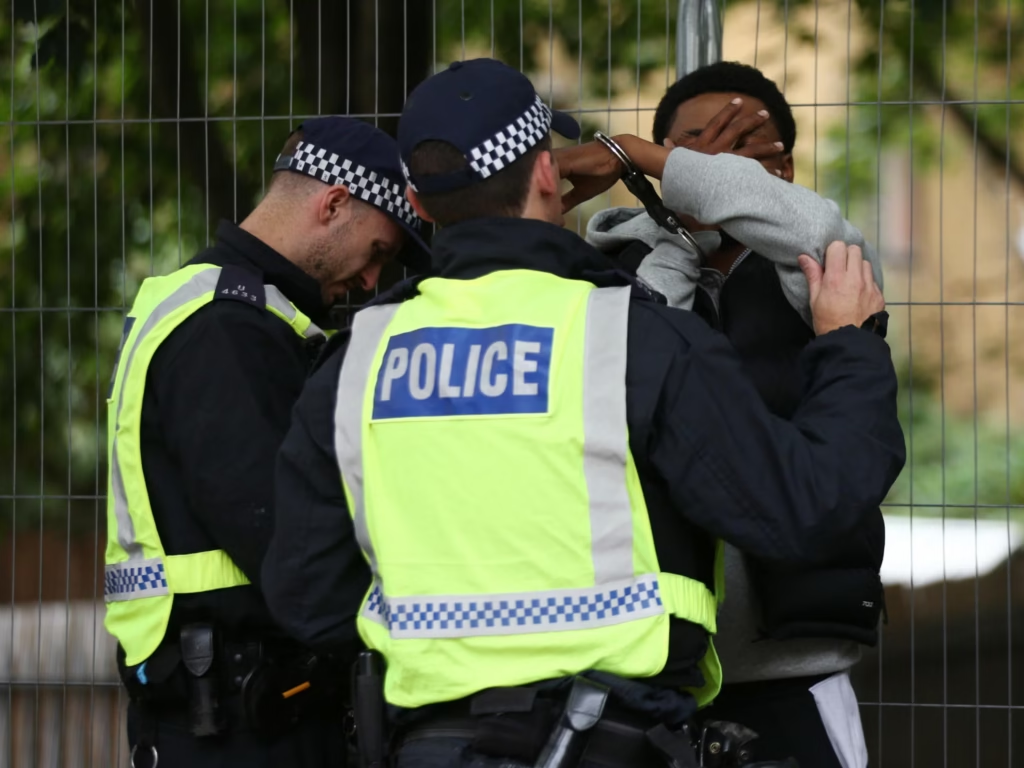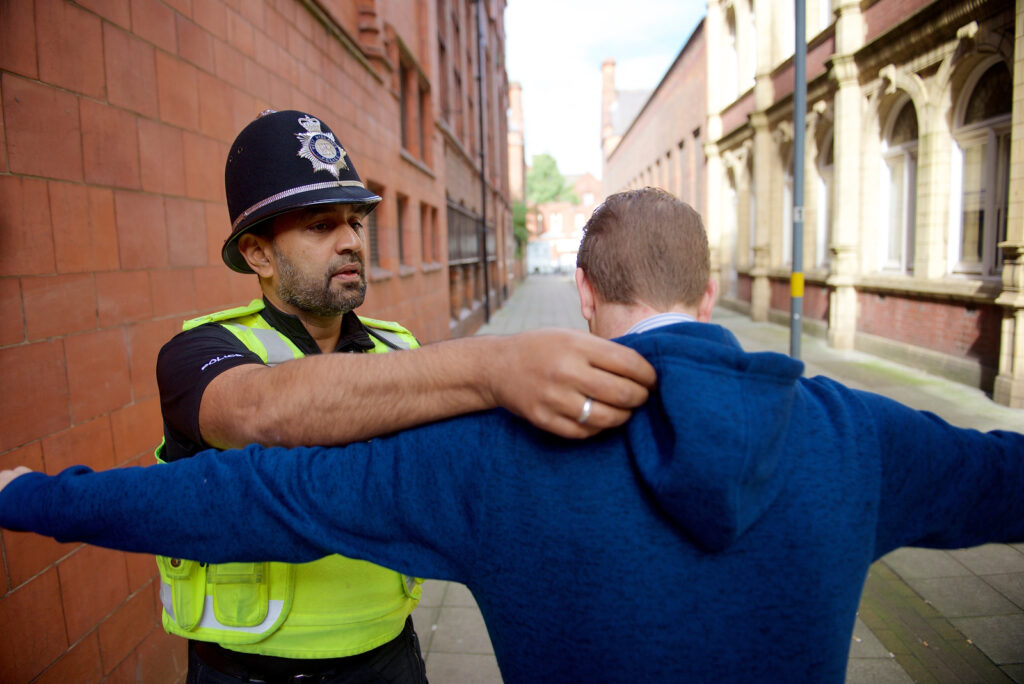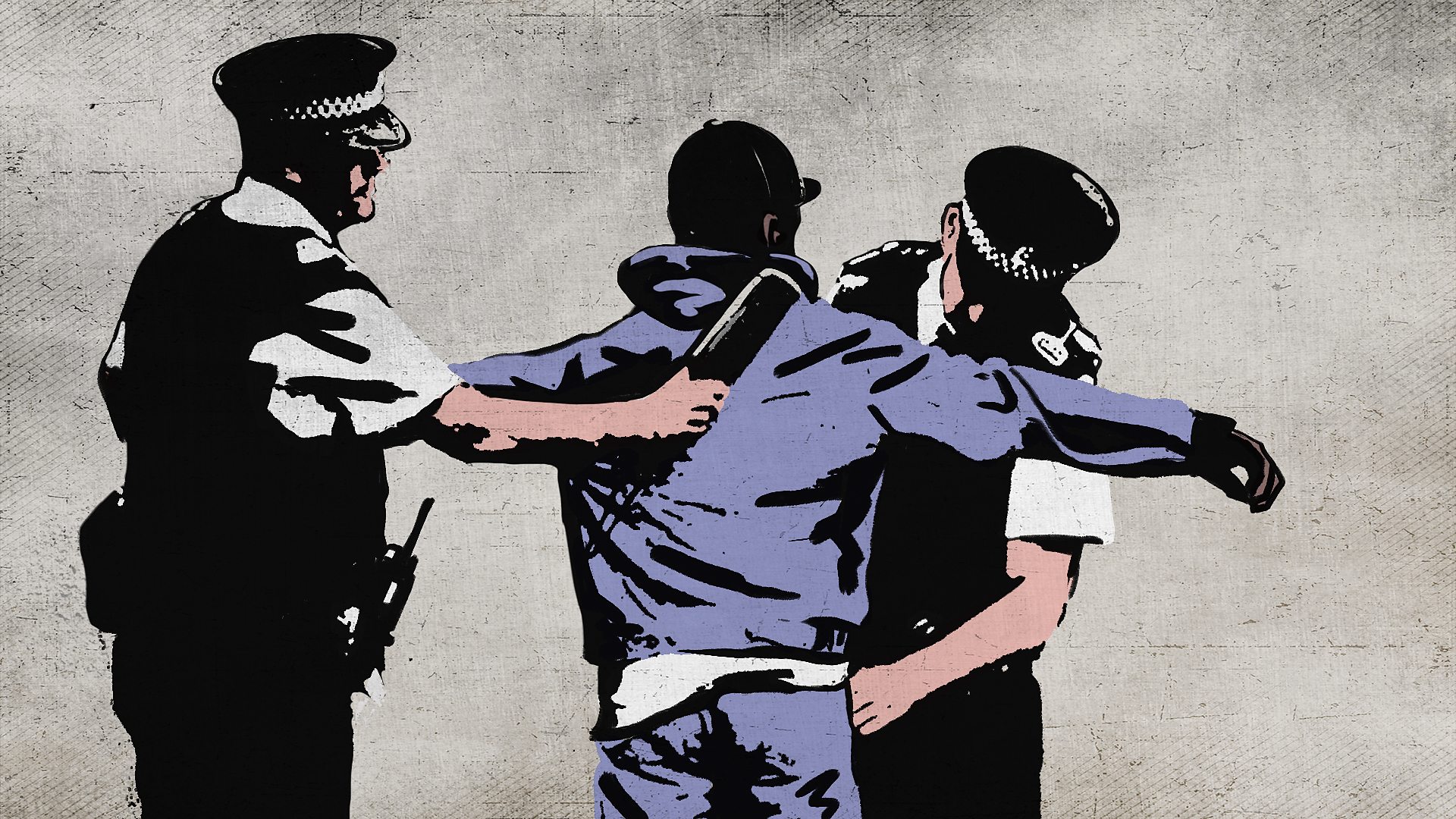Stop and search is a police power that allows officers to detain individuals for inspection. They do this to find illegal items like drugs, weapons, or stolen goods. While this power is important for safety, it can also be controversial. Some people think it’s used unfairly.
Being stopped and searched means a police officer stops you and checks your clothes, bag, or car. The police can do this if they think you have something illegal. This power helps the police find dangerous items like knives or drugs. However, police need a good reason to stop you.
There are two main types of stop and inspect: suspicion-based and suspicion-less
The Legal Basis for Stop & Check
Suspicion-Based Stop & Check
A suspicion-based stop and search is when the police stop you because they believe you might be carrying something illegal. They must have a good reason to suspect this. For example, they might think you have drugs or a weapon. The police need “reasonable grounds” to stop you. This means they can’t stop you because of your appearance or where you are.
What are “reasonable grounds”? It means that the officer must have a clear reason based on facts. For example, if the officer saw you acting suspiciously or if you were in an area known for crime.
Suspicion-Less Stop & Search (Section 60)
Sometimes, police can stop and search people without having a specific reason. This is called a suspicionless stop and search. This can happen when a senior officer believes there could be serious violence in an area. The officer may stop people to prevent violence or find weapons. These searches are allowed for up to 24 hours and can be extended.

Stop and Search for Serious Violence Reduction Orders (SVROs)
A Serious Violence Reduction Order (SVRO) is a court order given to someone caught carrying a weapon. If someone has an SVRO, the police can stop and search them to check if they have a gun again. The police don’t need to have suspicions to stop these people. They can do it simply because the person has an SVRO.
Your Rights During a Stop & Search
Should the police stop and search you, you have rights. One needs to be aware of their nature. Before they search you, the cops have to tell you specific things. They have to clarify these:
- Why are they pausing you? The cops have to explain the rationale behind the stop to you.
- They should state what they hope to discover, say narcotics or a weapon.
- Their name and badge count: Ask them who they are.
- Where they work: They have to inform you of the police station they belong from.
- Their chosen law: The officer has to inform you whatever legislation entitles them to stop and search you.
You also have the right to request a search record. The cops should hand you a piece of paper outlining the events during the search.
What Happens During a Stop & Search?
During a stop-and-search, the police might ask you to empty your pocketbook or purse. They can also peruse your wardrobe and remove your coat or jacket if they believe you are hiding something. However, they must do this quietly to eliminate anything else, including religious attire.
Should the police wish a closer inspection of you, they may ask for a strip search. Only with particular clearance from a senior officer may this take place. A trustworthy adult should be at your side during the search.

Is Stop & Inspect Effective?
Police use stop-and-search to reduce crime, but it doesn’t always work as expected. Studies show that stop-and-search doesn’t always reduce crime significantly. A recent study found that 2022-2023, stop-and-search led to only a 5% decrease in violence. Other methods, like focused deterrence or hotspot policing, showed much better results.
Despite this, stop-and-check is still widely used. Police must use this power wisely to reduce crime without harm.
Conclusion
The police use stop-and-check procedures carefully. They must also use this power responsibly, ensure they have a good reason for stopping someone, and treat everyone fairly. The police must also work on building trust with communities, especially young people.
If the police stop you, it’s important to know your rights. You should always feel safe and be treated with respect. Understanding the laws surrounding stop-and-search can help you feel more confident in these situations.
Thank you for reading, click the link to read more of our Advice Articles
Inside Success presents to you our digital platform, created to inform, inspire and empower 16-35s. Through our articles, we aim to bring bold ideas, fresh voices and real conservations to life. From mental health advice, to career information, and fashion tips to social issue debates, Inside Success is proud to have created a platform that has something to cater to everyone.




Leave a Reply
You must be logged in to post a comment.